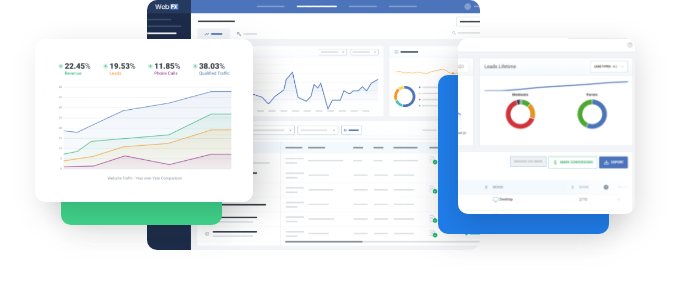Driving Results with Creative Digital Solutions
From social media to search engines — we help startups and businesses scale fast with full-funnel 360° digital marketing solutions.



We Don’t Just Market. We Drive Measurable Growth.
Your brand isn’t just a name—it’s a voice, a vibe, a vision.
We bring that to life through strategies that feel authentic and drive real impact.
EXPERTISE IN STRATEGY, DESIGN AND DEVELOPMENT
At Peculiex, every project is unique, just like your brand. While no two journeys are the same, we follow a proven process that helps us understand your goals, craft the right strategies, and bring your vision to life. It’s collaborative, transparent, and built for growth.

DISCOVERY
Through research and conversations, we understand your brand, audience, and goals to craft a plan that fits your business perfectly.

STRATEGY
From choosing the right platforms to defining messaging and creatives, we craft a strategy that’s focused on results — not fluff.

DEVELOPMENT
From creatives to campaigns, we execute seamlessly and refine continuously for the best results.
FULL-SERVICE DIGITAL AGENCY
The digital agency work process may vary depending on the specific project and client needs, but typically follows these basic steps. It is a collaborative and iterative process.
How We Drive Your Growth
Search Engine Optimization
We optimize your business website to rank higher on Google, boost visibility, and attract more organic traffic. Our SEO strategies help increase inquiries, build trust, and drive sales year-round—across any industry.
Lead Generation
As a lead generation agency, we help your business reach the right audience. With catchy ads and compelling copy, we turn interest into action. Our data-driven strategies ensure every campaign delivers measurable results.
Marketing Automation
We simplify lead management with automated follow-ups and seamless CRM integration—boosting engagement, improving brand recall, and increasing conversions for businesses across all industries.
PPC Campaigns & SEO
We run PPC campaigns to boost targeted brand visibility, drive engagement, and generate leads—using precise audience targeting to help businesses stand out in a competitive digital landscape.
Performance Marketing
Our performance marketing focuses on precision-driven campaigns and high-impact creatives—boosting brand visibility, engaging the right audience, and maximizing ROI for businesses across all industries
Branding & SMM
We believe your brand is more than a logo—it's an experience. Through smart strategies and reputation management, we help businesses grow and stand out in a competitive market.
Our Top Services
Enhance your online visibility and drive organic traffic to your website with our expert SEO strategies.
Search Engine Optimization
Attract high-quality leads and turn clicks into customers with our expert lead generation strategies using Meta & Google Ads.
Lead Generation
Fuel your digital strategy with high-quality content that resonates with your audience and drives meaningful engagement.
Content Marketing
Our design experts craft visually stunning and user-friendly websites optimized for performance and conversion
Website Design
Our Expertise Conducting brand audits and competitive analysis to identify areas for improvement and opportunities.
Brand Strategy
Engage your audience and build brand loyalty with our comprehensive social media marketing solutions.
Social Media Marketing
Our team crafts high-quality, conversion-focused graphics that capture attention, reflect your brand, and turn viewers into loyal customers
Graphic Designs
Our video editing team transforms raw footage into scroll-stopping, high-quality videos that captivate audiences, boost views, and grow your follower base.
Video Edting
Our Case Studies. Our Case Studies.
case-study-2
Stop Guessing. Start Profiting. For serious investors only: Expert Insight & Software to Remove the Guesswork from Investing. https://peculiex.com/wp-content/uploads/2023/10/02.mp4 APPLY
View Showcase
case-study-1
Stop Guessing. Start Profiting. For serious investors only: Expert Insight & Software to Remove the Guesswork from Investing. https://peculiex.com/wp-content/uploads/2023/10/02.mp4 APPLY
View Showcase
Helping Businesses in Different Industries Reach Their Business Goals









Reach Your Business Goals in 2025 with Peculiex
“Peculiex has always worked hard to make sure that we’re getting what we need out of the partnership, not just what may seem like the best result”
DIGITAL EXPERTISE ACTION
DIGITAL SERVICES.
our Trusted Client Say . our Trusted Client Say . our Trusted Client Say .
Peculiex gave our brand a fresh, professional look that actually brought in more business. People started noticing our posts and we even got compliments from clients. Totally worth it!
Muskan Bachchani,
Product Designer
What I loved most was how involved the team was. It never felt like just another project to them. They truly cared about the growth of our brand and it showed in the results.
Sapna Choudhary,
Founder
Our college is working with Peculiex and work which they deliver is more than the expectations. There on time delivery commitment and work ethics are just perfect. They never disappoint and come up with brilliant ideas.
Divya Jain,
Assistant Professor, DIAS
Best video editing services provided by them...really helped me to boost my videos.
Shilpa Kohli,
Founder, Label Devi By Shilpa Kohli

Read Our Latest Insights
We dive deep into the trends, stories, and strategies shaping the world of digital marketing, tech, and creative design. Whether you're a business owner, marketer, or just curious — our journal brings you fresh, valuable perspectives every week.
Frequently Asked Questions
What makes Peculiex different from other digital marketing agencies?
We don’t do fluff. Peculiex blends sharp strategy with conversion-focused execution—delivering content, design, and campaigns that actually drive revenue, not just engagement.
Do you guarantee results?
Yes—measurable ones. We align KPIs before onboarding and focus on traffic quality, lead generation, and sales impact—not vanity metrics.
Can you handle everything or just one service like SEO or social media?
We do both. Peculiex offers end-to-end marketing (branding, content, SEO, social, paid ads) or focused solutions, whichever drives growth fastest for your business.
How soon can I expect to see results?
Depending on the service—SEO takes 2-3 months, ads and content marketing can show ROI within 2-4 weeks. We move fast but don’t cut corners.
What kind of businesses do you work with?
We work with growth-focused startups, personal brands, and established companies looking to scale their digital presence and generate real business outcomes—not just likes or views.
Can Peculiex adapt to our brand’s tone and industry?
Absolutely. We deep dive into your brand voice, audience, and market before we create. Whether you’re in tech, education, lifestyle, or services—we speak your language, creatively and strategically.

LAT’S MAKE SOMETHING
GREAT TOGETHER
we are dedicated to helping businesses achieve
their goals through innovative digital solutions.

LET’S MAKE SOMETHING GREAT TOGETHER
Peculiex Agency Rating
4.9/5
Based on over 100+ reviews








